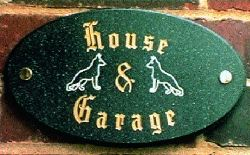Oliver Payne and Nick Relph
Gavin Brown's Enterprise, New York, USA
Gavin Brown's Enterprise, New York, USA

'Smash the symbols of the Empire in the name of nothing but the heart's longing for grace.' Oliver Payne and Nick Relph may rail against corporations which commodify our dissent and leave us whistling the jingle, but they are themselves not averse to a bit of sloganeering. This rather florid example comes from Driftwood (1998), a psycho-geographical tour of London and one of three short films marking the duo's American début in Gavin Brown's back room. Payne failed his degree at Kingston University last year. Relph went one better and got expelled. They both got lucky.
Driftwood embraces Le Corbusier's vision of London as a 'pack dog' city, unplanned and chaotic, imperfectly Modern. It opens with a description of London's South Bank Centre as the scene of an ongoing battle between skateboarders and the forces of authority. The Centre's efforts at deterrence - strategically placed fences and spikes - recall devices intended to deter homeless people from sleeping in certain important doorways. The parallel illuminates precisely the territory that Payne and Relph inhabit: the intersection of play and social conscience, romantic escapism and the cruelty of the real. Driftwood embodies their approach in its subjective take on the documentary form. It is defiantly opinionated, unabashedly poetic, and it wears its sources (in this case filmmaker Patrick Keiller and writer Iain Sinclair) proudly on its sleeve.
While not all of Payne and Relph's observations in Driftwood are original - roving hands-free phone users have been compared to the mentally ill before - there are enough flashes of brilliance to make the journey worthwhile. London Transport's flat fare policy on night buses earns it the designation of 'the last true Socialist movement', and 'Eat Money, Spend Food!' sounds like fine non-sensible advice. Graffiti kids are dubbed 'lycanthropic youth', and their efforts at toppling the established order of things are compared favourably with those of 'real' Anarchists, drinking contentedly in local pubs after a Stop the City demonstration.
Jungle (2001) brings the same sensibility to bear on the British countryside, exposing it as a debased hinterland of mock Medievalism, battery farms and entrenched misapprehension, attractive only through its association with UFOs and crop circles. Jungle has no narrator, but is instead interspersed with acerbic captions comparing rural Norfolk to Kansas and espousing the essential beauty and truth of sickness and death ('an image of undistorted life'). If it sounds a little grim, well, that's because it is, but there are touches of incidental humour amid the hunting and hunt sabotaging. There is also more than a hint of Martin Parr's television documentary Think of England (1999) in the film's portrayal, by turns deadpan and bemused, of national eccentricity.
House and Garage (1999) is a less focused work, but the most out-and-out beautiful of the three. A free-form collage of the life that orbits London, it moves from a line-dancing class to a department store, from a wheezing roadside jogger to a toddler astride a motorbike. The juxtaposition of image with ambient sound, conversation and music brings these scenes to life, as the film's mood flits from ecstatic to melancholic. There are spotlit clubbers, their eyes darting left and right, the sequence bursting into noise for a second as it ends. There are fireworks imploding, sucked back towards the ground in inverted celebration. There is a tortoise munching lettuce to the sound of a photocopier. And there is a man reading Edgar Allan Poe, sitting on a bench inscribed with the words 'happy days'. Best of all though are the monologues: youth tribes, decorators' colour charts and kids' TV listings intoned with all the apocalyptic relish of Ewan McGregor's Renton reeling off the ingredients of a safe life in Trainspotting (1997). Imagine the words 'fat fuschia pink body warmer' spat in your face by Vinnie Jones on a roll.
House and Garage (the title crops up in an impassioned comparison of the two musical forms, both appropriately endemic to suburbia) matches pure Punk bile with wistful nostalgia in the manner of the late, great Derek Jarman. Gentle, elegiac passages - images of flowers and silent, lonely figures - are interspersed with a continually interrupted account of a dope-farming friend's narrow escape from the police. The juxtaposition of video with 16 mm and Super 8 film footage gives the end result a fluctuating texture. Its fragmented aesthetic alludes continually to an aftermath - (think of Harmony Korine's 1997 movie Gummo or Paul Auster's novel In the Country of Last Things, 1987). Bursting with spastic energy and barely suppressed giggles, chance encounters and constructed jokes, it is an experiment with heart.
























